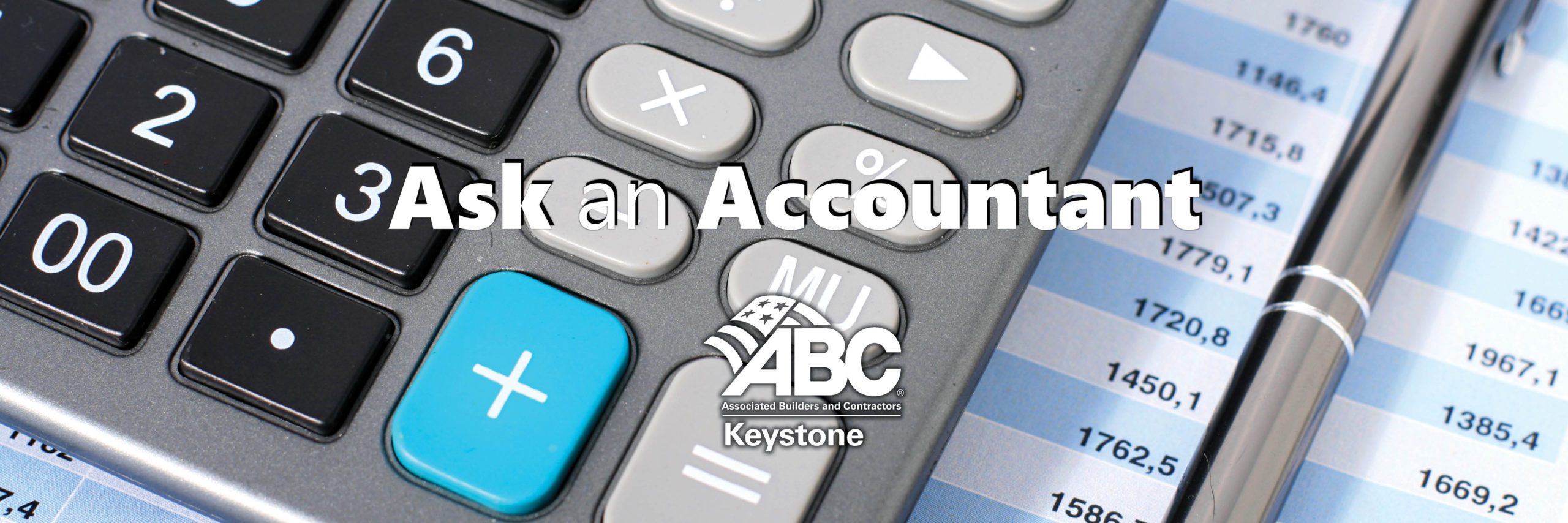Cash Management to Improve Your Bottom Line
By: Daniel Sturm, CPA, CCIFP, Partner
Cash management is the process of managing the inflows and outflows of cash in a business and is particularly important for construction contractors. Long payment cycles, unpredictable expenses, and fluctuating demand all emphasize the need for cash management. A solid cash management strategy and process can help with long-term sustainability and help drive additional income straight to your bottom line, especially in today’s interest rate environment.
With guidance from your financial advisor, excess cash can also be invested, creating additional cash flow and income.
Poor cash management can affect the ability to grow, obtain new contracts, pay suppliers, employees, and taxes, and ultimately result in negative net income. There are many strategies that you can implement to improve cash management. Improving cash management is a longterm project that requires an intentional strategy and focus. We have outlined a few cash management strategies below for your consideration. While not an all-inclusive list, we’ve observed these strategies contribute to the success of many contractors.
Plan ahead. One of the most important steps in cash management is to create a realistic cash flow forecast that projects the expected cash inflows and outflows for a given period. This can help you anticipate and prepare for cash shortages or surpluses, and to adjust spending and borrowing accordingly. A cash flow forecast should be updated regularly and based on accurate data from past and current projects, as well as market trends and customer behavior.
We should emphasize that projections and forecasts apply to more than the business as a whole. This same strategy can and should be applied to capital
equipment purchases. Construction equipment is a major expense for most construction companies. Forecasting cash flows prior to equipment purchases will support your decision-making process. Cash inflow from new equipment should exceed the cash outflow for debt and all other costs associated with the
equipment.
Contract payment terms. Contract payment terms are as important as ever, particularly in today’s environment with fluctuating material prices and rising
costs. Frontloading payments on contracts can provide significant benefits to your cash management process. This allows you to work on your customers’ dollars, versus your own, for mobilization and other job startup costs. These costs can be significant. Frontloading payments may create a liability on your balance sheet, however, it’s a much better option than using your line of credit or other debt, which only adds to the cost of business. For contracts that are
significant in duration, you may have an opportunity to hold excess cash in short-term investments, driving additional investment income to your bottom line.
Invoice and collect promptly. Another way to improve cash management is to ensure that invoices are sent to customers (and collected) as soon as possible and that they are clear and accurate. While this seems like a basic strategy, it is not uncommon for us to see significant job costs build on a balance sheet. Monitoring unbilled job costs is critical to cash management, particularly on time and materials projects. You’ve incurred the cost and have a right to payment. Sitting on these unbilled costs may be costing you interest income, or even worse, costing you interest expense on your line of credit. An accounts receivable process that demands accountability of your project managers, or others responsible for billing closes the loop on this process. In the words of Peter Drucker, “what gets measured, gets managed.”
Manage expenses and inventory. Controlling expenses and inventory of the business is probably the “go-to” item to manage cash. While critical, it’s just one piece of the overall strategy. Contractors should review their expenses regularly and identify areas where they can reduce costs or negotiate better terms with suppliers. You should also monitor inventory levels and avoid overstocking or understocking materials and equipment, which can tie up cash and
increase storage and maintenance costs.
Incentivize ALL employees. Creating an incentive plan for all employees can provide a tremendous boost to a cash management strategy. Ask yourself how are my employees motivated to serve our clients with excellence, drive additional billings, collect cash, and control spending. Does the person answering your phone know they have a direct impact on the experience of your customers? Customer experience has a direct impact on your ability to set fees and get paid. You may have an opportunity to redesign current incentive plans to help drive forward a new strategy and mindset where everyone contributes and
benefits. One idea is creating cash collection goals and rewarding employees for exceeding those goals. A well designed incentive plan gives all employees
an opportunity and motivation to contribute to your strategy.
Education. Last, but not least, the education of your entire organization can have a significant impact on your cash collections, top line revenue and
net income. Often, your team may focus on areas specific to their job and lose sight of the big picture. For example, project managers are very aware of
budgets and costs impacting jobs they are charged with managing. But are those same project managers aware of all the costs it takes to run your business? We have observed some clients apply administrative fees to each job that cover the general and administrative costs of running the business. It allows the project manager to see that a gross margin of 10% can quickly decrease to 7% or less. Applying an administrative cost to each job may influence contract bid estimates and overall behavior in spending. Especially, if these same project managers receive bonuses based on the bottom-line results. Educating everyone about the business can make a difference, sometimes immediate.


